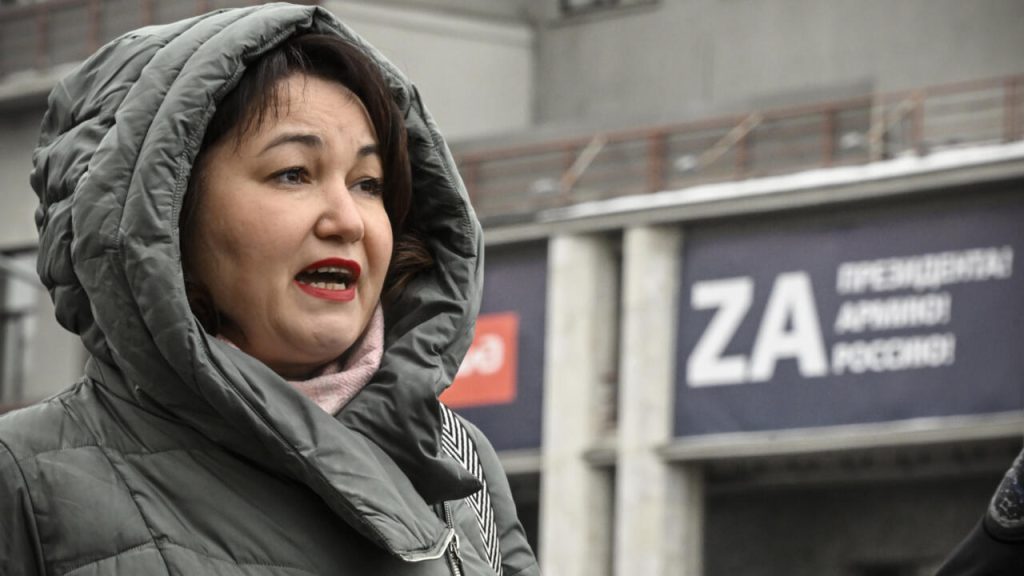
Issued in: the average:
Moscow (AFP) – Videos of them are pouring out on Russian social media – mothers and wives of soldiers mobilized to fight in Ukraine, urgently demanding that the military fulfill promises made by President Vladimir Putin.
Anger and anxiety have mounted across Russia since September, when the Kremlin announced that hundreds of thousands of well-trained and well-equipped men would be recruited and sent to the battlefield to support Moscow’s faltering campaign in Ukraine.
But chaos ensued, with widespread reports of excluded men — old or infirm — being sent to the front or conscripts dying after receiving almost no training, forcing the Kremlin to admit “mistakes”.
In a sign that Putin is taking the growing crisis seriously, on Friday he is expected to meet a group of military mothers and wives for the first time since ordering Russian troops into Ukraine nine months ago.
But some relatives have already dismissed the meeting as carefully choreographed and as not providing a platform for frank discussion.
“The president will meet some mothers pulled out of his pocket, they will ask the right questions and thank him,” said Olga Tsukanova, an activist mother.
“As usual.”
Her 20-year-old son is currently doing his military service and she wants to make sure he is not sent to Ukraine.
Tsukanova traveled 900 kilometers (560 miles) from the city of Samara on the Volga River in hopes of seeing her in the Kremlin.
stressful memories
“I’m not alone. Call us, Vladimir Vladimirovich, answer our questions!” she said, referring to the president by his family.
Analysts said anger at the fate of the mobilized men, which could turn into genuine resentment, has put the Kremlin in an uncomfortable position.
While the authorities have cracked down on political dissent an unprecedented crackdown as troops fight in Ukraine, the word mothers is sacred in Russia.
Imprisoning them is not an option.
For Putin, the sight of angry relatives may bring back difficult memories from the beginning of his rule more than two decades ago.
In August 2000, the Russian leader was criticized for his too slow response when the Kursk submarine sank, killing all 118 crew members on board.
Two wars in Chechnya led to the rise of the mothers’ movement in Russia, which became a thorn in the Kremlin.
But the climate is different this time, with no independent media in the country and a virtual ban on public criticism of Putin’s offensive.
This means that there has been little public questioning of the operation in Ukraine. But in Russia some ask questions about the conditions under which relatives are sent to fight.
“holding power accountable”
The status of mothers and wives as relatives of the men mobilized to serve the country afforded them a form of protection, rather than as ordinary adversaries.
“There is a subconscious feeling that women have this right” to question the authorities, said sociologist Alexei Levinson of the independent Levada Center.
He warned that this is not a “women for peace” movement.
They want the state to fulfill its responsibility as a “collective father” towards the mobilizers.
At the moment, the Soldiers’ Mothers movement is uncoordinated and disparate, consisting mainly of anxious relatives posting videos on social media, as some informal groups have formed.
This is how Tsukanova, who has links to controversial opposition figure Svetlana Piunova — accused in Russia of spreading political conspiracy theories — got involved in the mothers’ movement.
In a climate of suspicion not seen since Soviet times, many women fear that complaining about the attack could mean trouble and refrain from speaking to the foreign press.
“We have sent messages to the authorities,” an unnamed woman told AFP.
“It is not the journalists who will pull our men out of the trenches and we do not want to hurt them any more.”
© 2022 AFP




More Stories
Journalists convicted in Hong Kong sedition case
Stand News: Hong Kong journalists convicted of sedition in case critics say highlights erosion of press freedom
Shark decapitates teen off Jamaica coast